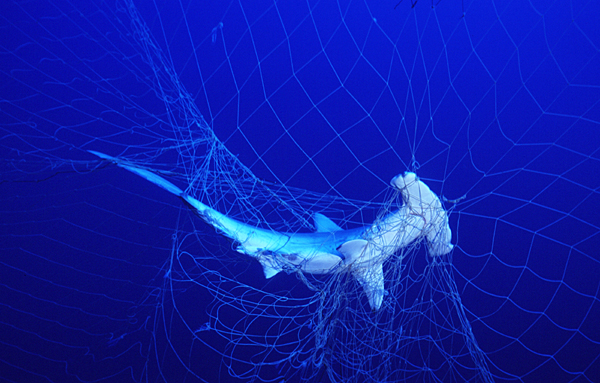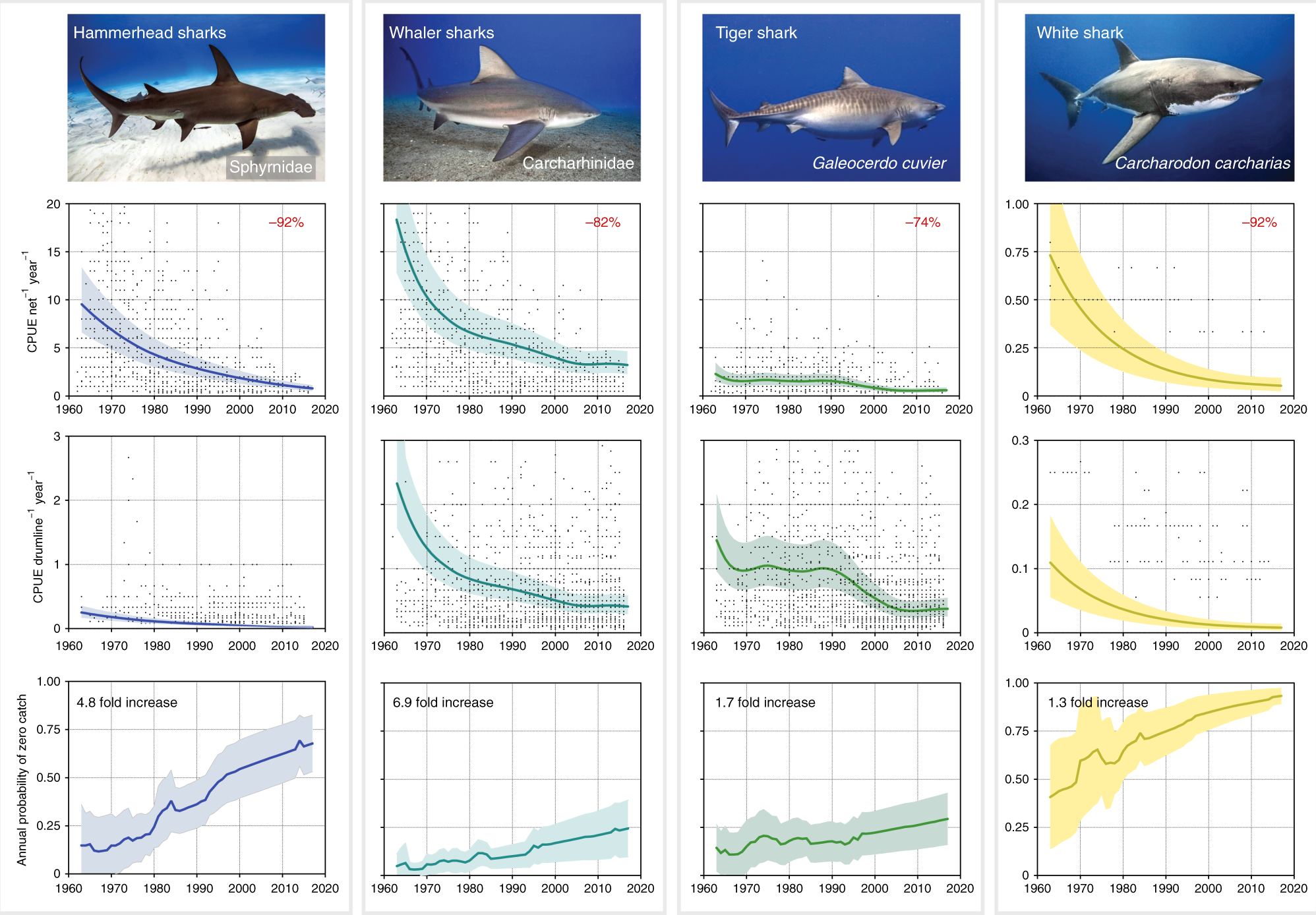Overfishing is threatening our over-sized fish
Shark stocks around the world have fallen to a fraction of their previous numbers in recent years, say biologists. Human activity, most notably fishing, is the driving cause of this decline, and leading researchers say that this is just the beginning. The future of sharks around the world is looking bleak, and if something is not done soon, there might be no saving them.

By Seawatch.org – Picture,, Attribution, https://commons.wikimedia.org/w/index.php?curid=4961555
One peer reviewed analysis, completed by Roff et al. states that shark populations off the coast of Australia are down 74-92% from historical baselines. This massive drop in shark CPUE (catch per unit effort) is no doubt a result of the intensive fishing effort that shark species are facing. Sharks are valued for their meat, and this has resulted in a 300% increase in fishing effort over the past several decades. However, in some cases such as that of the Great White shark’s, even with a complete ban on commercial and recreational fishing they are seeing a steady decline.

Retrieved from: Decline of coastal apex shark populations over the past half century | Communications Biology (nature.com)
So, what’s the answer to this problem? What steps can we take to prevent the collapse of these species?
One of the biggest issues that researchers and conservation officials face is the inability to regulate what goes on outside of their regional waters. In the case of regulations regarding shark fishing, the rules and restrictions only extend out to the Economic Exclusion Zone (EEZ) of that country. Outside of that, in international waters, there is very little stopping fishers from harvesting the various shark species that are susceptible to overfishing.
In addition, there is a large demand for shark meat and products. Shark-fin soup is one of the most infamous of these dishes, resulting in the harvesting of an entire shark for just the fin, with the rest of the animal being discarded. Colin Simpfendorfer, a researcher at the James Cook University in Queensland, told The Guardian that sustainable fishing of sharks is possible, with the stipulation that good management and enforcement of rules is present.
I should also note how susceptible sharks are due to their natural life histories. Important shark species like the Great White are slow to mature, taking up to 16 years to reach mating age, having small and infrequent litters.
However, despite all the doom and gloom, it should be noted that sharks are quite resilient.
They have survived, unchanged, for hundreds of millions of years. They have passed through multiple geologic eras, and their ability to adapt and survive is unmatched. Many believe that with proper management in place sharks will eventually recover to their previous numbers, an inspiring prospect.
The exploitation of these animals, that serve so many ecological functions in our oceans, is abhorrent. We need to change our attitudes on shark conservation, and be more stringent about effecting policy change in our own governments as well as trading partners, before too little is done too late.
References:
Threatened Species – Shark Champions
Collapse and Conservation of Shark Populations in the Northwest Atlantic | Science (sciencemag.org)